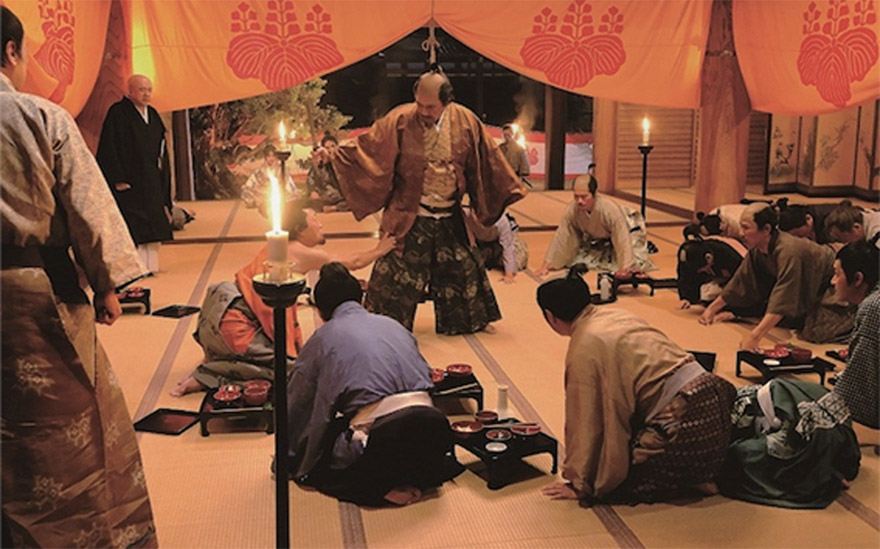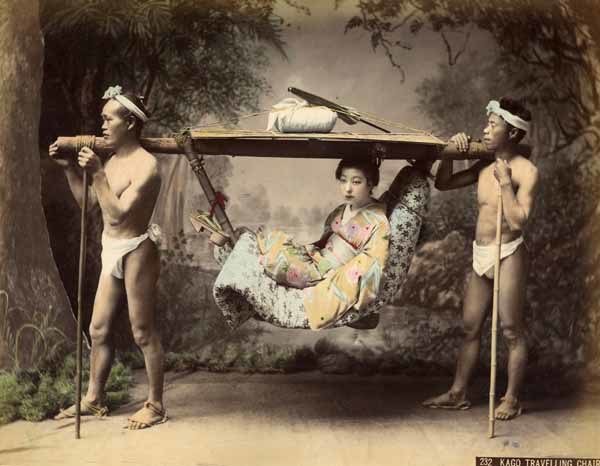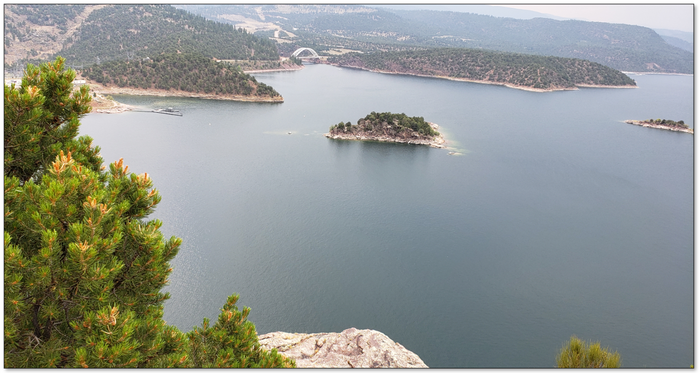1. American civilians and East Asian overlords
 @valued-customer
@valued-customer
 Japanese overlords
Japanese overlords
Andrew Jackson put an end to that reign of usury early in the 19th Century, so that influence has been interrupted, at least. However, it has certainly been re-established in spades, and that noxious power again has our nation by the bollocks. Klaus Schwab has been ejected from the WEF, and replaced with the former Nestle CEO, Peter Brabeck-Letmathe, suitably less human, and humane, than even Schwab.
Texas and Oregon are thousands of miles apart, and are indeed separate polities, though they both tacitly accede to membership in the union, eschewing violent subjugation and Civil War. There are always undercurrents of separatism in both states, with the eternal divide between rural and urban both exacerbating and complicating politics. Oil empowered rural Texas folk to wield more power politically early in the 20th Century, while Oregon's cities have unremittingly been Democrat, repressing more practical policies, worse of late. Execrable corruption and drug money today renders Oregon amongst the worst of US states in yielding to international power. Wedged between California and Washington, it lurks in the shadows of more affluent and powerful border states, but is no less burdened by the influence of international money. It's cities rule the state with reeking hordes of alien criminals, drug addled Socialists that outnumber good country folk whom bathe regularly. Texas wildcatters have been tamed by financial schemers, and suffers a similar sentence to urban political power, but was a great place ride hard before it's descent.
Under the skin, deeper than mere rhetoric, there is only one political party in America, and the uniparty has only two planks: bribery and blackmail. In terms of rhetoric, you have reversed the party roots Jefferson and Hamilton would today represent, but these present institutions would be unrecognizable to either man. Trump has replaced the Republican Party with a core of OG Democrats, and the Democrats are off the reservation entirely, with elections being no more meaningful than ritual and raw money power buying offices. Republic has become a meaningless word to almost everyone I know, and freedom is getting to buy your own surveillance and tracking device subscription, while democracy is just cheering for whomever is in office. The world was far different 250 years ago, where Americans could set out beyond the frontiers and live by such laws as seemed right to them. In my youth in a village surrounded by wilderness I roamed afield at times, when the oppressive stench of too many neighbors put me off my feed, and put me on my feet to wander until my solitude cleared the air and restored the savor of meat again.
The wonderful and great English sentences of @valued-customer, a civilian from the New World, always cause great pain to American elementary school students!😅
I felt that @valued-customer wanted absolute freedom for American individuals! Is he an opponent of American federalism?
I looked into the first people who immigrated to Oregon 200 years ago.
https://www.youtube.com/watch?v=GM4kSTC0lp8
I'm shocked to learn that @valued-customer's ancestors lived a hellish life!😨
https://www.youtube.com/watch?v=z8-xRCn5mnA
I remember how hellish it felt for @valued-customer's ancestors to colonize America!
I remember @valued-customer saying he could still walk 25 miles a day to hunt deer! @valued-customer boasted that he would chase and catch a deer no matter how fast it ran!
I'd guess @valued-customer's ancestors hunted very hard to solve their hunger! If they failed to hunt, they probably starved to death!
I was shocked to learn that @valued-customer's ancestors lived in such shabby and unclean dwellings!
I would have thought that @valued-customer's ancestors would always have learned how to hunt to protect their lives, families, and property! @valued-customer's ancestors always had to risk their lives for farming, hunting, and trading. If farming, hunting, or trading failed, their families and entire villages could starve to death.
Crypto and the Coming KYC Internet
We should strenuously object to requiring ID to use the internet, and absolutely refuse to use biometric ID at all (for myriad reasons, primarily that corporations can't keep their data safe from hackers, and once a hacker has you biometric ID, he has your ID for the rest of your life, because you can't change your biometric information like you can change a password), as well as for internet access, but that will not stop (((them))) from implementing these policies. We must use other means to communicate that we ourselves own, such as Reticulum, and decide ourselves what we are allowed to communicate. If we do not, if we accede and use the KYC internet, we will be slaves. As we have seen, (((they'll))) slowly introduce limitations, and perhaps even positive requirements, like agreeing to not boycott Israel, or to vote, but also sudden changes will be implemented, as the UK has immediately done shutting down dissent to immigration policies the very day the OSA was implemented.
I have said this about crypto for years now. As long as (((they))) own the physical network we communicate on - the internet - crypto depends on (((their))) permission. The whole idea of crypto is that it is permission free - but depending on the internet makes it dependent on permission of the network owners. We've seen debanking used to silence dissent, as it was against the Truckers Freedom Convoy in Canada, and against Nigel Farage in the UK, and many others for a variety of reasons. GoFundMe is notorious for only allowing crowd funding of purposes it is in favor of. VISA and other payment processors have eliminated the ability of Odysee and many other people and users to accept payment in fiat. How long do you think it will be before crypto is used the same way?
Just say no to slavery. The way to do that is to be independent of the goods and services slavers provide. Independence is freedom. Dependence is slavery. Be free.
I thought @valued-customer was claiming that people could starve to death if they lose their money to scammers!

I remembered that @valued-customer's ancestors starved to death because they failed at farming, hunting, and trading!
I guess @valued-customer remembers that his ancestors were scammed by scammers and lost their wealth and lives!
Prior to Gov. Kotek's election Sam Bankman-Fried was stealing furiously from the rubes that invested in the cryptocurrency fraud scheme he ran. He used ~$100M of that money to bribe politicians, by donating it to their campaigns, including Tina Kotek. In addition to that large quantity of stolen money, the drug dealers that ran La Mota, a retail cannabis chain with dozens of stores across Oregon and the United States, provided stacks of cash to Tina Kotek's campaign at drug fueled orgies attended by criminals and government officials. This isn't a euphemism, but an accurate description of the method and quantities of funds La Mota's owners provided Gov. Kotek.
The government of Oregon represents thieves and drug dealers well, and is utterly unsuitable to a government of honest, hard-working people that build productive communities and raise families. Gov. Kotek exemplifies the criminality and predatory nature of the government of Oregon, and I wouldn't piss on her if she was afire. I most certainly did not aid and abet the criminals that foisted her on hapless Oregonians as our state Crimelord, and oppose every political initiative and act she, and her criminal enterprise known as the State of Oregon, have committed since her accession to office.
Kate Brown infamously wrought havoc and destruction on Oregon during her tenure, particularly against it's children, destroying it's schools.
@valued-customer always said to beware of the tricks of the overlords!

Sima Qian (c. 145 BC – c. 86 BC) was a Chinese historian during the early Han dynasty. He is considered the father of Chinese historiography for the Shiji (sometimes translated into English as Records of the Grand Historian), a general history of China covering more than two thousand years from the rise of the legendary Yellow Emperor and formation of the first Chinese polity to the reign of Emperor Wu of Han, during which Sima wrote. As the first universal history of the world as it was known to the ancient Chinese, the Shiji served as a model for official histories for subsequent dynasties across the Sinosphere until the 20th century.[1]

The Shiji (simplified Chinese: 史记; traditional Chinese: 史記; pinyin: Shǐjì; lit. 'Historical Records'), also known as Records of the Grand Historian or The Grand Scribe's Records (simplified Chinese: 太史公书; traditional Chinese: 太史公書; pinyin: Tàishǐgōng shū), is a Chinese historical text that is the first of the Twenty-Four Histories of imperial China. It was written during the late 2nd and early 1st centuries BC by the Han dynasty historian Sima Qian, building upon work begun by his father Sima Tan. The work covers a 2,500-year period from the age of the legendary Yellow Emperor to the reign of Emperor Wu of Han in the author's own time, and describes the world as it was known to the Chinese of the Western Han dynasty.[1]
The Shiji has been called a "foundational text in Chinese civilization".[2] After Confucius and Qin Shi Huang, "Sima Qian was one of the creators of Imperial China, not least because by providing definitive biographies, he virtually created the two earlier figures."[3] The Shiji set the model for all subsequent dynastic histories of China. In contrast to Western historiographical conventions, the Shiji does not treat history as "a continuous, sweeping narrative", but rather breaks it up into smaller, overlapping units dealing with famous leaders, individuals, and major topics of significance.[4]
The Shiji totals over 500,000 characters in length, organized into 130 chapters. While the style and form of Chinese historiography was not static over time, the Shiji created a permanent standard for quality and style for later scholars. Before Sima, histories focused on recounting particular events or the affairs of a specific region; his idea of a general history guided later historiographers, like Sima Guang and Zheng Qiao [zh] (鄭樵), authors of the Zizhi Tongjian (1084) and Tongzhi (1161) respectively. While the traditional format by which official histories would be organized was codified later by Ban Gu in the Book of Han (111 AD), historians consider the Shiji to have informed Ban's work.[1]
The jizhuanti (紀傳體) format divides a work into several different types of chapters, most prominently 'basic annals' (本紀; benji) and 'ordered biographies' (列傳; liezhuan). Benji contain biographies for each sovereign, ordered chronologically and organized by dynasty; liezhuan contain biographies of influential individuals outside the nobility, sometimes for one prominent individual, but often for two or more people who, in Sima's judgment, played comparably important roles. In addition to these namesake categories, there are chapters falling under the categories of 'tables' (表; biao) collating graphical chronologies of royalty and nobility, and 'treatises' (書; shu) giving historical accounts of topics like music, ritual, or economics. Most importantly, the 'house chronicles' (世家; shijia) document important events during each ruler's reign for each state within the Zhou dynasty, as well as histories of the noble houses established during the Han.
The Shiji includes 12 basic annals, 10 tables, 8 treatises, 30 house chronicles, and 70 ordered biographies; with the final ordered biography serving as the postface. This final chapter details the background of how the Shiji was composed and compiled, and gives brief justifications for the inclusion of the major topics, events, and individuals in the work. As part of the background, the postface provides a short sketch of the history of the Sima clan, from legendary times to his father Sima Tan. It also details the dying words of Sima Tan, tearfully exhorting the author to compose the present work, and contains a biographical sketch of the author himself. The postface concludes with a self-referential description of the postface as the 70th and last of the Ordered Biographies chapters.
Sima Qian (c. 145 BC – c. 86 BC) wrote The Shiji (simplified Chinese: 史记; traditional Chinese: 史記; pinyin: Shǐjì; lit. 'Historical Records'), which is called the genesis book for the overlords of East Asia.

The Nihon Shoki (日本書紀) or Nihongi (日本紀), sometimes translated as The Chronicles of Japan, is the second-oldest book of classical Japanese history. It is more elaborate and detailed than the Kojiki, the oldest, and has proven to be an important tool for historians and archaeologists as it includes the most complete extant historical record of ancient Japan. The Nihon Shoki was finished in 720 under the editorial supervision of Prince Toneri with the assistance of Ō no Yasumaro and presented to Empress Genshō.[1] The book is also a reflection of Chinese influence on Japanese civilization.[2] In Japan, the Sinicized court wanted written history that could be compared with the annals of the Chinese.[2]
The Japanese overlords created The Nihon Shoki (日本書紀) in imitation of The Shiji (simplified Chinese: 史记; traditional Chinese: 史記; pinyin: Shǐjì; lit. 'Historical Records').
The reason The Shiji became the most important book of creation for the the overlords of East Asia is because it contains information about numerous events and people. Information about the most dangerous events and people was especially important to the overlords.
So, The overlords of East Asia studied and learned how to govern the masses by reading The Shiji.
The Japanese overlords began their study of civilians @valued-customer by reading The Shiji.
Japan's overlords have concluded that civilian @valued-customer is their most dangerous and feared enemy!😆

Jing Ke (died 227 BC) was a youxia during the late Warring States period of Ancient China. As a retainer of Crown Prince Dan of the Yan state, he was infamous for his failed assassination attempt on King Zheng of the Qin state, who later became Qin Shi Huang, the Qin Dynasty's first emperor (from 221 BC to 210 BC). His story is told in the chapter titled Biographies of Assassins (刺客列傳) in Sima Qian's Records of the Grand Historian.
Jing Ke (died 227 BC) was a butcher who was a dog slaughterer, and is most famous in East Asia because he attempted to assassinate Qin Shi Huang!

Qin Shi Huang (Chinese: 秦始皇, pronunciationⓘ; February 259[e] – 12 July 210 BC) was the founder of the Qin dynasty and the first emperor of China.[9] Rather than maintain the title of "king" (wáng 王) borne by the previous Shang and Zhou rulers, he assumed the invented title of "emperor" (huángdì 皇帝), which would see continuous use by monarchs in China for the next two millennia.
Perhaps the Japanese overlords recognized Jing Ke (died 227 BC) as a human being similar to @valued-customer!
 London slum children
London slum children
 , a Japanese noblewoman and her servants,
, a Japanese noblewoman and her servants,
starving children in North Korea
America's endless food supply.
 America's beautiful natural environment.
America's beautiful natural environment.
Fat @joeyarnoldvn
The overlords of East Asia were envious, jealous, and fearful of the boundless wealth, resources, and territory held by @valued-customer.
Jing Ke (died 227 BC) was poor, but @valued-customer held one of the richest and most extensive territories in the world.
So, The overlords of East Asia of East Asia are always jealous of the wealth, power, and territory that @valued-customer has and want to take it away!
![99558C4C5BC816EE3A.png](https://files.peakd.com/file/peakd-hive/goldgrifin007/48KbQao3Y9VeaRsYAnuDPSRe67oALCEEEwFqN7NThaRmnyVysF